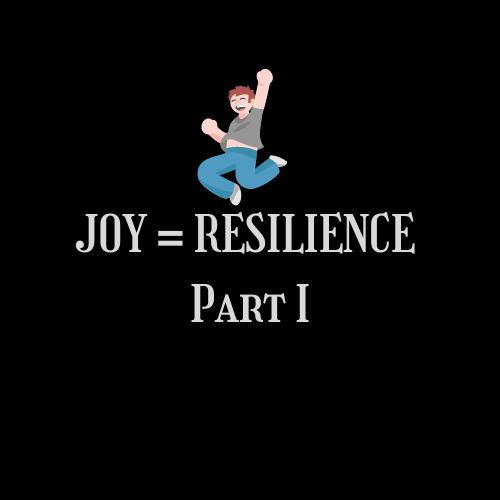When you think of resilience, your brain generates pictures or words related to discipline, strength & toughness, etc. Not a comfortable or friendly setting that reflects joy. But you will be surprised that the organizational culture of joy deeply relates to resilience.
In an individual’s life and the life of any organization in the world, the secret ingredient that increases resilience is JOY. Most people who leave their work do it for the following reasons:
-
Not a great boss
-
Burn Out
-
Toxicity & politics
Does any of these three points give you a feeling of joy? It feels like something dark, heavy, and dull.
Finding its origin in the French joie, based on the Latin Gaudium, from Gaudere, a verb – rejoice, means to produce a feeling of happiness and great pleasure. It is the feeling that a year-old baby feels when her mother comes close and touches her with affection. It is the feeling in a grandfather’s heart when his son finally returns from a war. It is the feeling in a mother’s heart when she sees her baby take the first steps. It is also the feeling you get when engaged in your garage, fixing your car or cooking a special dessert in your kitchen.
Joy is something that needs to be cultivated. This article presents a sociocognitive perspective of cultivating joy to enhance personal and organizational resilience. I will walk you through two essential theories – COR & BNB (in part 2). I will also highlight how the culture of joy in organizations impacts the behavior of groups and, thereby, the outcomes in the organization (part 2).
Before that, let me define what I mean by the culture of joy. According to Hartmann et al., 2020, the Culture of Joy is the manifestation of positive collective emotions. It is the key driver for resilience. Joy contributes positively to one’s social and cognitive mechanisms to combat volatility, uncertainty, complexity, and ambiguity at work and in general. When you are surrounded by people who have immense joy, and when you are joyful, you internally sense that you can weather any storm.
According to Maslow’s hierarchy of needs, organizations, like people, have needs. Once the most basic needs are met, or in the process of being met, the leaders must act preemptively and work on the organization’s higher, more sophisticated needs. From an organizational perspective, the most basic needs are finances, a plan, a workplace, and machinery. A level up from this point, the needs are different. It would be best to have people, various roles and positions that they fill—the multiple responsibilities and the contracts that explain them.
As we go higher up in the needs of the organizations, we see the emotional needs of people. People are not machines. Our composition entails thoughts, desires, hopes, fears, and myriad complex emotions. Just like food sustains the physical part of human existence, invisible elements such as a worldview, beliefs, hope, dreams, desires, etc., are food for the psyche. Ignoring these is detrimental and unloving to yourself and the people you lead. A good leader will always nourish self and their team’s psyche.
So many organizations focus on level one and feel confident, failing to realize that lack of awareness about the higher needs is as significant as the basic ones. Many organizations are, therefore, malnourished. They fail to recognize that a lack of positive emotional resources, by definition, means an overflow of negative emotions. Organizations collapse when issues arise at level one (finances, machinery, and any other physical issue) because they have nothing from which to draw inspiration.
Organizations need multi-faceted resources: level#1 is physical, and level#2 is emotional. Most bosses, managers, and supervisors are excellent at providing support at level 1 but seem oblivious to the need at level 2. This functionality “seems” good but is a disaster brewing in secret, welling up to a volcanic eruption of demoralization and discouragement in their employees.
So, how do we gather resources at level#2 to support employees holistically? How do we acknowledge that they are more than just brains, eyes, and hands that produce work? Well, firstly, remember that you are dealing with flesh & blood and beyond! You have at your disposal colossal potential with bearings on many generations of other people. And the common thread to unite them all will be – JOY.

